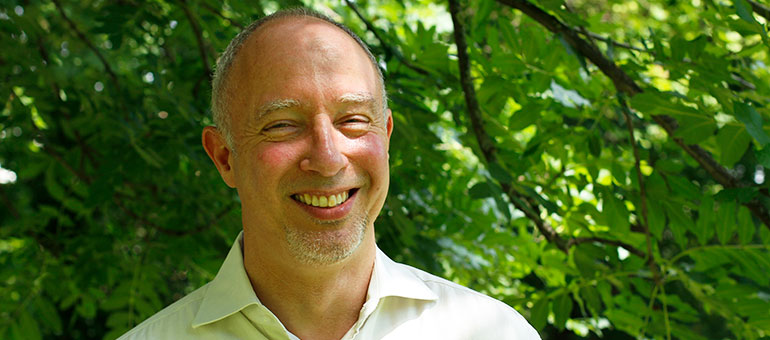What are your responsibilities as Director of Programme Services?
The Programme Services Team is a group of about thirty-five technical professionals who support both the design and implementation of the projects which GAIN is involved in. We have three big areas of work. Firstly, we are continuously refining and deepening the strategic thinking behind each of GAIN’s programme areas. Secondly, we contribute to quality assurance of GAIN’s projects, working tirelessly to promote impact, sustainability, and scalability of our interventions. Thirdly, we try to encourage layering and cross-referencing of projects so that the whole of GAIN’s work adds up to more than the sum of the parts.
We only lead the implementation of projects in countries where GAIN does not have a country office, but we support all of GAIN’s work. As leader of this team, I support all of my staff and am accountable for technical quality in project design. I represent our group on the Senior Management Team.
What are the most rewarding aspects of your work?
It is all rewarding! What could be better than seeing the coming-to-life of a project which has the potential to change the lives of thousands of vulnerable people? I get a big kick when we hit any of our three goals: impact on the people who desperately need better food systems, sustainability, when we either support business models that work or when governments step in to ensure long-term financing for a great idea, and scale, when we see something that we started on a small scale grow much bigger. Of course, if we can get a hattrick of all three, that makes my week (month, even)!

Saul Morris is the Director of Programme Services, and is based in the GAIN office in London. © GAIN
What are the most challenging aspects of your role?
It is challenging to have to work within the constraints of a non-profit organisation. Sometimes, there are things that we want to do that would require us to operate differently. We might want to back a really risky or long-term initiative, that none of our funders have the appetite for. Or we might want to employ talent from the private sector that cannot be reconciled with our salary scales as a non-profit organisation. Or perhaps we might want to do a business deal directly which would sit very awkwardly on our accounts. We have lots of imagination and lots of great ideas, but not all of them are possible to implement as a foundation.
What inspires you to do the work you do on a daily basis?
I am inspired by the people that I meet when I travel. Most of all, by the people who have all the cards stacked against them in some of the world’s most resource-constrained environments, but somehow still manage to come up with solutions. But also by the young professionals I meet who are so amazingly competent and creative.
In my first job in northern Ghana, we hired village high-school graduates who went around on bicycles interviewing local families for research. Years later, I saw their names as first authors of academic papers in leading global journals. I hope there will be many more of these over the rest of my career.
In your view, what are the most challenging aspects of working in partnerships? How can these be overcome?
If you find people interesting, partnerships are a delight, not a challenge. The ones that are persistently challenging are just… not the right partnerships. All the other challenges can be overcome with a dose of humour.
Which pieces of advice would you give to a young graduate who wants to build a career in the global health and/or development sector?
Learn a functional skill. You can pick up global health/development later, but first and foremost you need to be able to do something that the sector needs. We are screaming for more food technologists, management accountants, web designers, commercial strategists, and the like. If you just have an undergraduate degree in development studies, we will struggle to know what to do with you.
What is your greatest achievement in this role so far?
It sounds very prosaic, but I am proud of having designed a set of processes which enable the different parts of our organisation—technical specialists, country-based implementers, knowledge leaders, and finance professionals—to come together, co-owning and co-managing our projects. Overcoming organisational silos is tough!